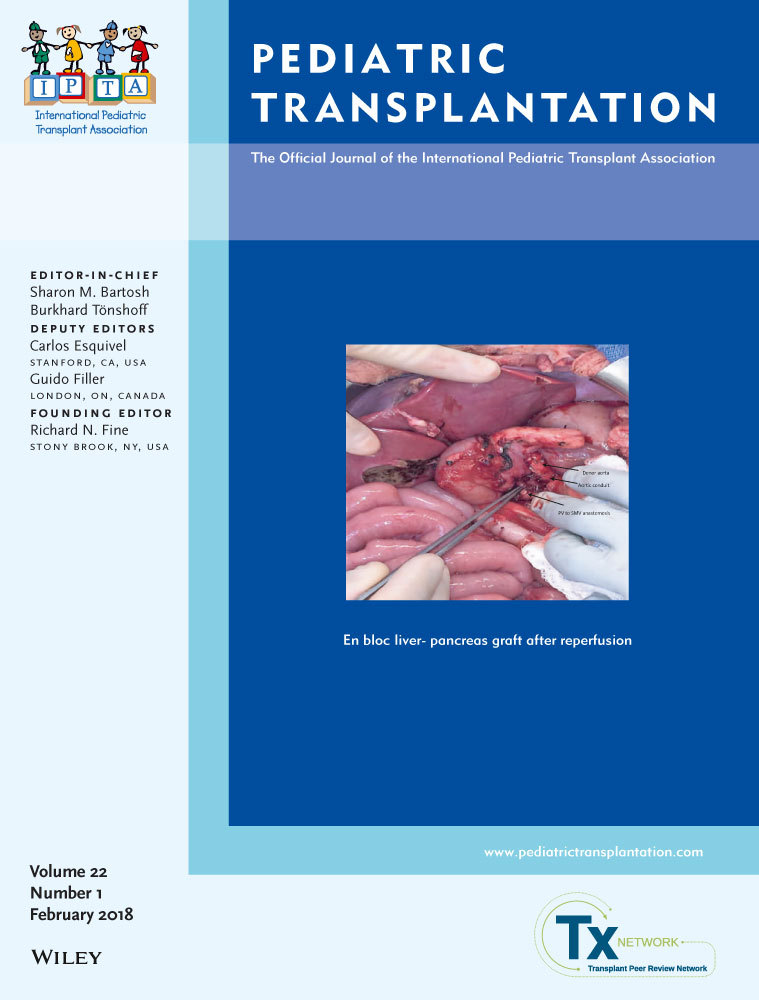Outcome of antibody-mediated rejection compared to acute cellular rejection after pediatric heart transplantation
Abstract
Outcomes of ACR after pediatric HTx have been well described, but less has been reported on outcomes of AMR. We compared the clinical characteristics and cardiovascular outcomes (composite end-point of death, retransplantation, or allograft vasculopathy) of pediatric HTx recipients with AMR, ACR, and no rejection in a retrospective single-center study of 104 recipients. Twenty were treated for AMR; 15 were treated for ACR. Recipients with AMR had an increased frequency of congenital heart disease (90% vs ACR 67% vs no rejection 59%, P = .03), homograft (68% vs 7% vs 18%, P < .001), HLA sensitization (45% vs 13% vs 13%, P = .008), and positive cross-match (30% vs 7% vs 9%, P = .046). AMR caused hemodynamic compromise more often than ACR (39% vs 4%, P = .02). AMR recipients had worse cardiovascular outcome than recipients with ACR or no rejection (40% vs 20% vs 8.6%, P = .003). In bivariate Cox analysis, AMR (HR 4.1, CI 1.4-12.0, P = .009) and ischemic time (HR 1.6, CI 1.1-2.3, P = .02) were associated with worse cardiovascular outcome; ACR was not. In summary, pediatric HTx recipients who develop AMR have worse cardiovascular outcome than recipients who develop only ACR or experience no rejection at all.




